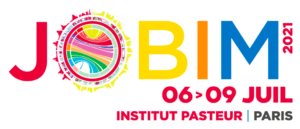About

In the JOBIM 2021 conference, we are launching a pilot project on gender speaking differences in academia. Through this evidence-based and mixed-method study, we intend to answer the following question: how to create the conditions for gender-equal expression in scientific conferences?
Objective of the study
Most scientists would agree that success in science should solely be determined by the merit of one’s contributions. However, success in STEM fields (Science, Technology, Engineering and Math) is still profoundly influenced by race, gender and socioeconomic status. For instance, numerous studies documented the gender bias throughout the publication process: women publish less than men[1], are less likely to be in the first position among authors who contributed equally[2], and are less cited than men[3]. These disparities impact careers as publication productivity and citations are key elements in evaluation processes. Gender disparities are also noticeable on less externally constrained behaviours such as the number of questions asked in large scientific conferences[4][5]. Yet, as concerning as this overview may be, collective discussions among scientific peers have proven to efficiently mitigate the gender-gap in question-asking behaviour. Encouraged by this precedent, we think that scientific conferences, by their collective nature, are the ideal opportunity to discuss these inequities and challenge them. In the line of previous studies conducted by Tellis et al and Carter et al [4][5], we propose to foster a discussion on inclusivity during the upcoming JOBIM conference (Journées Ouvertes en Biologie et Mathématiques). To this end, an expert anthropologist Junhanlu Zhang will lead an observational study on the JOBIM conference with the support of two research engineers (Rachel Torchet and Hanna Julienne) of the Institut Pasteur HUB of Bioinformatics and Biostatistics.
Methodology and project implementation
This original study is at the interface between social science and quantitative science. In order to collect necessary data for the study, apart from gathering relevant information from the registration survey, we asked willing participants to complete a post-conference survey. The survey questions covered some basic demographic information and focused on question-asking behaviours during the JOBIM conference. During the conference, a participatory and observational study was performed under detailed guidelines. Finally, we conducted in-depth interviews with participants randomly selected amongst those who give their permission to be part of this study. All data was later be analysed in a scientific manner with adoption of qualitative and quantitative research approaches.
We presented this initiative during the JOBIM opening session where participants could learn more about the project and were welcomed to join us for a discussion. We hope this observational and in-depth study will give us insights on how to create a more inclusive scientific environment for people of all genders and progress one step further toward a scientific community that would not overlook any worthy contributions.
Study Outcomes
Informed by our study results, we created a set of guideline for conference organizers that can be freely accessed below :
[embeddoc url=”https://research.pasteur.fr/wp-content/uploads/2021/04/research_pasteur-jobim-2021-pilotproject-genderspeakingdifferencesin-academia-gender-equal-and-1-1.pdf” download=”all” viewer=”google”]
Contact Information
If you have further questions about the project or would like to share your insights with us, please contact us at jobim-project@pasteur.fr. To get in touch with individual researchers of the project, please refer to the following contact list:
Junhanlu Zhang (junhanlu.zhang@pasteur.fr)
Eng. Rachel Torchet (rachel.torchet@pasteur.fr)
Dr. Hanna Julienne (hanna.julienne@pasteur.fr).
Acknowledgement
This study is funded and supported by the Institut Pasteur HUB of Bioformatics and Biostatics
JOBIM 2021 registration form data protection policy
The information collected on the registration form is recorded in a computer file by the SFBI and the JOBIM 2021 pilot project research team ( jobim-project@pasteur.fr) at the Pasteur Institute for research purpose only (details of the project are provided on this research page). The processing of personal data is based on consent. Explicit consent is required in the form for the processing of special categories of data. Extra data obtained for the purpose of this research project is non-mandatory and not filling in the non-mandatory fields in the form will have no impact on your registration to the JOBIM 2021 conference. All your personal data will be processed anonymously.
The research-related data collected from the registration form will be communicated to the following recipients only:
Junhanlu Zhang (junhanlu.zhang@pasteur.fr)
Eng. Rachel Torchet (rachel.torchet@pasteur.fr)
Dr. Hanna Julienne (hanna.julienne@pasteur.fr)
The research-related data is kept for a period of one year (starting from when the data is recorded) and will be deleted in the end of this research project.
Please be aware that you can withdraw your consent to the processing of your data at any time. You can also exercise other individual rights in compliance with the GDPR regulations – you can access your data, rectify it, object to the processing of your data or exercise your right to the portability of your data. To exercise these rights or for any question about processing your data, you can contact the research team via email (jobim-project@pasteur.fr).
If you feel, after contacting us, that your “Data Protection” rights have not been respected, you can file a complaint with the CNIL.
References
[1] https://journals.plos.org/plosone/article?id=10.1371/journal.pone.0183301
[2] https://elifesciences.org/articles/36399
[3] https://www.nature.com/news/bibliometrics-global-gender-disparities-in-science-1.143 21
[4] https://linkinghub.elsevier.com/retrieve/pii/S0002929719302290
[5] https://journals.plos.org/plosone/article?id=10.1371/journal.pone.0202743



